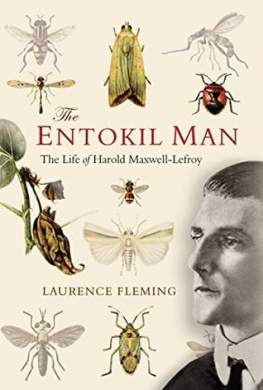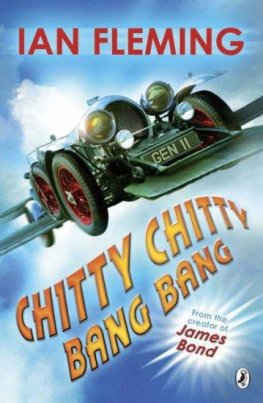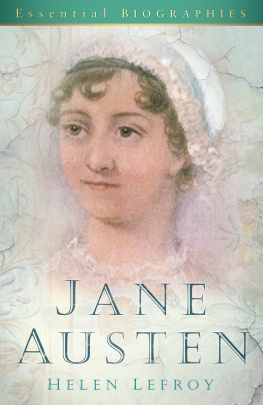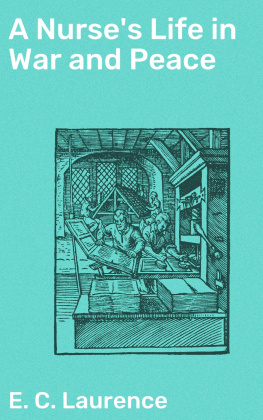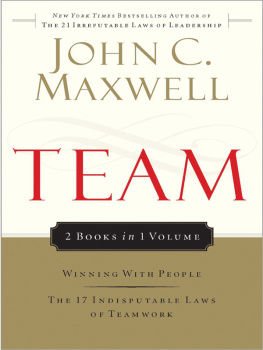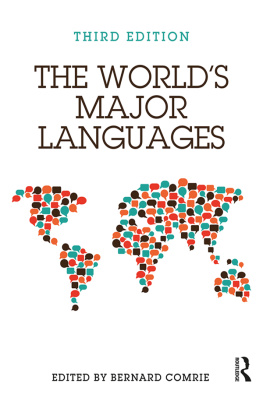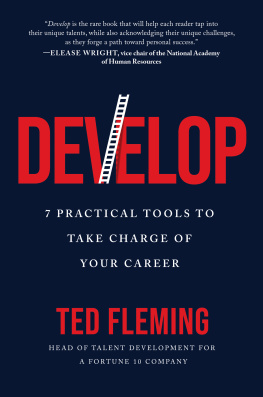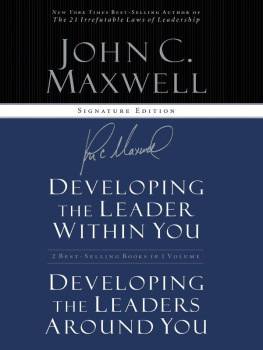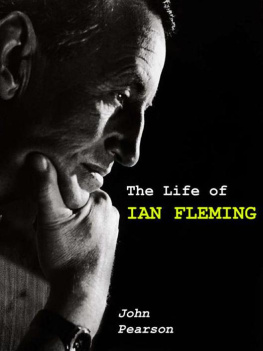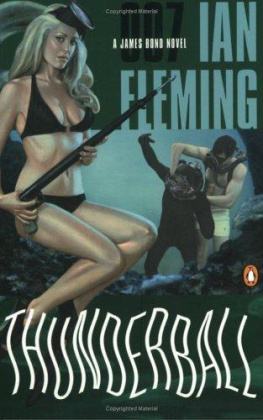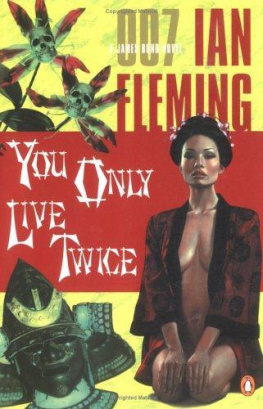Laurence Fleming - The Entokil Man The Life of Harold Maxwell-Lefroy
Here you can read online Laurence Fleming - The Entokil Man The Life of Harold Maxwell-Lefroy full text of the book (entire story) in english for free. Download pdf and epub, get meaning, cover and reviews about this ebook. year: 2015, publisher: Dexter Haven Publishing, genre: Science. Description of the work, (preface) as well as reviews are available. Best literature library LitArk.com created for fans of good reading and offers a wide selection of genres:
Romance novel
Science fiction
Adventure
Detective
Science
History
Home and family
Prose
Art
Politics
Computer
Non-fiction
Religion
Business
Children
Humor
Choose a favorite category and find really read worthwhile books. Enjoy immersion in the world of imagination, feel the emotions of the characters or learn something new for yourself, make an fascinating discovery.
- Book:The Entokil Man The Life of Harold Maxwell-Lefroy
- Author:
- Publisher:Dexter Haven Publishing
- Genre:
- Year:2015
- Rating:3 / 5
- Favourites:Add to favourites
- Your mark:
- 60
- 1
- 2
- 3
- 4
- 5
The Entokil Man The Life of Harold Maxwell-Lefroy: summary, description and annotation
We offer to read an annotation, description, summary or preface (depends on what the author of the book "The Entokil Man The Life of Harold Maxwell-Lefroy" wrote himself). If you haven't found the necessary information about the book — write in the comments, we will try to find it.
The Entokil Man The Life of Harold Maxwell-Lefroy — read online for free the complete book (whole text) full work
Below is the text of the book, divided by pages. System saving the place of the last page read, allows you to conveniently read the book "The Entokil Man The Life of Harold Maxwell-Lefroy" online for free, without having to search again every time where you left off. Put a bookmark, and you can go to the page where you finished reading at any time.
Font size:
Interval:
Bookmark:
THE ENTOKIL MAN
THE LIFE OF HAROLD MAXWELL-LEFROY
LAURENCE FLEMING

Published in 2015 by Dexter Haven Publishing Ltd
Curtain House
134146 Curtain Road
London
EC A AR
Copyright 2015 Laurence Fleming
The right of Laurence Fleming to be identified as the author of this work has been asserted by him in accordance with the Copyright, Designs and Patents Act 1988 .
All rights reserved. Except for brief quotations in a review, this book, or any part thereof, may not be reproduced, stored in or introduced into a retrieval system, or transmitted, in any form or by any means, electronic, mechanical, photocopying, recording or otherwise, without the prior written permission of the publisher.
A full CIP record for this book is available from the British Library
ISBN (Mobi) 978-1-903660-19-5
A full CIP record for this book is available from the British Library
Typeset by Josh Bryson
Contents
Editors Note
The pound in 1900 was worth 104 of todays money, and in 1914 97. If the reader will multiply by a hundred all the sums of money mentioned in the early part of the book he will get some idea of their value at that time. I am most grateful to Mr Robin Baillie for this information.
There were always rupees to the pound, no matter how it fluctuated, and there were annas to the rupee. A lakh of rupees was a hundred thousand, written as Rs . 1,00,000 , and a hundred lakhs made a crore .
Foreword
My father joined the Burmah Oil Company in Rangoon in 1919 , immediately on leaving the Army, having fought all through the First World War. In 1921 Burmah bought the Assam Oil Company as a subsidiary, and in 1934 my father moved to Digboi in Assam, as General Manager, where he remained until he retired in 1944 .
Cecil Maxwell-Lefroy, the surviving son of Professor Harold Maxwell-Lefroy, joined Burmah in 1928 on leaving Cambridge. He worked only in Burma until being posted to Chittagong, in India, in 1938. During that time, and during the subsequent war, he came very often to Digboi and seems even to have worked there at some time. He would stay with my parents and they became great friends. He was to be General Manager of the Burmah Oil Company from 1954 to 1959 .
His mother, who had been with him in Burma, used to spend the Hot Weather in the Windamere Hotel in Darjeeling, a hotel which has since achieved a certain international fame. My sister and I were at school in Darjeeling and, whenever our mother came to visit us not too often as it was wartime she would stay at the Windamere and we always had tea with Mrs Lefroy. We came to know her quite well. The two families coincided only once, at Baileys Hotel in Gloucester Road in 1946 . We went to the theatre together but I am sad to say that I cannot now remember what we went to see.
Many years later, in the course of writing a book, I found myself with questions about Burma that our widowed mother was unable to answer. She suggested that I write to Maxwell, as she called him, and I did so. A meeting followed, and then another, and I very soon realised that what he wanted more than anything was for someone to complete his fathers biography. The research had been done, he said, but the researchers had failed to weld it into a book. In their own words, they had drowned in paper.
So I undertook it. I submitted my drafts chapter by chapter, asking for comments, but no comments were made, neither were there any objections. The text he approved is the one reproduced here. He wanted it to be called The Entokill Man .
The research was in fact done, expertly and exhaustively, by Miss Helen Lefroy, the Professors niece, and by her own nephew, Mr John Fullerton. Without them there would clearly have been no book and so this brings my grateful thanks to them for their monumental patience and perseverance. Their newspaper sources are all acknowledged and they have made excellent use of family memories, in particular those of Mr Cecil Maxwell-Lefroy.
Laurence Fleming
May 2015
Chapter I
At twenty-five past six on the evening of Wednesday the th of October 1925 , Harold Maxwell-Lefroy, Professor of Entomology at the Imperial College of Science and Technology, and formerly Imperial Entomologist to the Government of India, died in St Georges Hospital at Hyde Park Corner. He was forty-eight and had been unconscious for four days.
Earlier that year, on the st of March, the Morning Post had reported that the Professor had narrowly escaped death a few days ago while experimenting in his laboratory.
It seems that his investigations were concerned with the elimination of the fly danger, and he had reached a point where he had recorded in his notebook that the gases employed seemed too poisonous for use, when he himself was overcome. He was able to return to his private room, where he was found in a state of collapse.
From another source on the same day the Professor is reported as saying: I was so interested in the effect of the poison on the flies that I lost all account of time. Suddenly I felt difficulty in breathing, and it dawned on me my lungs were being filled with the gas.
On that occasion he was able to warn two men working in an adjoining room before he became unconscious. To restore him, oxygen had to be administered for over an hour. The flies, this report concludes, were found to be very much alive after the experiment.
By the nd of April the Morning Post was able to inform its readers that the Professor was once again at work in his laboratory.
I am able to get about again, he said, but it will be some time before I am free of the infection of the lungs which the gas caused. I am surprised and sorry that the matter has received so much publicity, because such accidents are part of the normal daily risk of our work and we do not think very much about them. Professor Maxwell-Lefroy had made a life study of insects, especially from the standpoint of their economic importance, an d as a result of his researches, the death watch beetle, which is threatening the historic buildings of England, can be eliminated at a fraction of the cost previously involved.
But this time the situation was more serious and not only the English papers were concerned. On the th of October the Border Cities Star of Windsor, Ontario, alerted its readers:
Victim of His Own Science Is In Coma
His lungs are filled with an unknown liquid which is slowly strangling him. The doctors say his symptoms indicate a gas containing chlorine. This is the second time that Prof. Lefroy has been a victim of his enthusiasm for science.
On the th, the death was reported in the Border Cities Star , The Standard of Buenos Aires, the Vancouver Sun , the Cape Argus of South Africa, the Toronto Star , the New York Times , the Ceylon Observer of Colombo and all the principal English papers. The Westminster Gazette , in the course of a long article, said:
Professor Maxwell-Lefroy fell a martyr to his own ability. It is difficult to imagine a man more devoted to his work, and more helpful to those whose fortunate lot it had been to attend his lectures, one of his students declared last night, before news of his death was known. If he had a fault it was that of too great reticence concerning his experiments, and many of us have remonstrated with him on the risks he took in the cause of science. He scoffed at the use of a gas mask, but neither of the misfortunes which befell him this year would have happened had he worn one.
From Manchester the Daily Sketch said, among much else:
In his early days Professor Lefroy was a schoolmaster, and later went to the West Indies and India, where he was the first official entomologist ever to be employed. In 1917 he went to Mesopotamia to do furious battle with the sandfly, and was described by the Daily Sketch as The Pied Piper of the War. Temperamentally he was of a retiring disposition, but conspicuously sincere in everything he undertook.
Font size:
Interval:
Bookmark:
Similar books «The Entokil Man The Life of Harold Maxwell-Lefroy»
Look at similar books to The Entokil Man The Life of Harold Maxwell-Lefroy. We have selected literature similar in name and meaning in the hope of providing readers with more options to find new, interesting, not yet read works.
Discussion, reviews of the book The Entokil Man The Life of Harold Maxwell-Lefroy and just readers' own opinions. Leave your comments, write what you think about the work, its meaning or the main characters. Specify what exactly you liked and what you didn't like, and why you think so.

